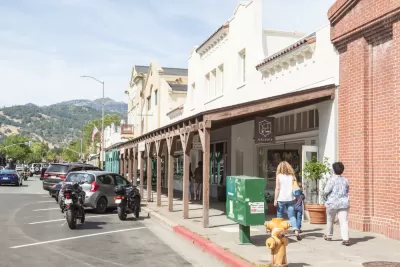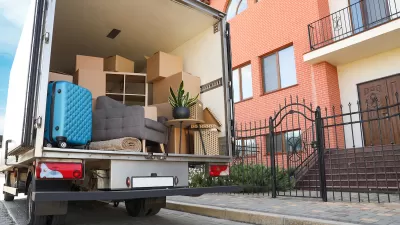A total of 144 metropolitan statistical areas might lose their federal designation if a proposal under discussion at the Office of Management and Budget is approved.

Mike Schneider, writing for the Associated Press, reveals the details of a plan under consideration at the federal Office of Management and Budget that would remove metropolitan statistical area (MSA) designations for 144 locations in the United States. The change would mean 144 MSAs with populations between 50,000 and 100,000 would be designated as micropolitan statistical areas instead. The 144 MSAs targeted for the change in designation represent a full third of the nation's total MSAs.
Officials in some of the cities included in the list of 144 are expressing concern that the change would affect federal funding for programs tied to MSA designation, like housing, transportation, and Medicare reimbursement programs, and create more competition for funding devoted to rural locations.
While Schneider's article focuses on some of the Midwestern locations likely to be impacted by the proposed change, the news also spread to the South, particularly in Alabama, where Lawrence Specker reports in a separate article that seven cities in that state are likely to be changed under the proposal, along with MSAs in the surrounding states of Louisiana, Arkansas, Tennessee, Mississippi, Georgia, and South Carolina.
As noted by Specker, the proposal has been under consideration for a few years, back to August 2019. The proposal is intended to update the definition of MSAs for the first time since the 1950s. The nation's population has doubled in that time, and percentage of Americans living in MSAs has increased from about half to 86 percent.
FULL STORY: Bye, Bismarck: 144 cities could lose status as metro areas

Planetizen Federal Action Tracker
A weekly monitor of how Trump’s orders and actions are impacting planners and planning in America.

San Francisco's School District Spent $105M To Build Affordable Housing for Teachers — And That's Just the Beginning
SFUSD joins a growing list of school districts using their land holdings to address housing affordability challenges faced by their own employees.

The Tiny, Adorable $7,000 Car Turning Japan Onto EVs
The single seat Mibot charges from a regular plug as quickly as an iPad, and is about half the price of an average EV.

Seattle's Plan for Adopting Driverless Cars
Equity, safety, accessibility and affordability are front of mind as the city prepares for robotaxis and other autonomous vehicles.

As Trump Phases Out FEMA, Is It Time to Flee the Floodplains?
With less federal funding available for disaster relief efforts, the need to relocate at-risk communities is more urgent than ever.

With Protected Lanes, 460% More People Commute by Bike
For those needing more ammo, more data proving what we already knew is here.
Urban Design for Planners 1: Software Tools
This six-course series explores essential urban design concepts using open source software and equips planners with the tools they need to participate fully in the urban design process.
Planning for Universal Design
Learn the tools for implementing Universal Design in planning regulations.
Smith Gee Studio
City of Charlotte
City of Camden Redevelopment Agency
City of Astoria
Transportation Research & Education Center (TREC) at Portland State University
US High Speed Rail Association
City of Camden Redevelopment Agency
Municipality of Princeton (NJ)





























